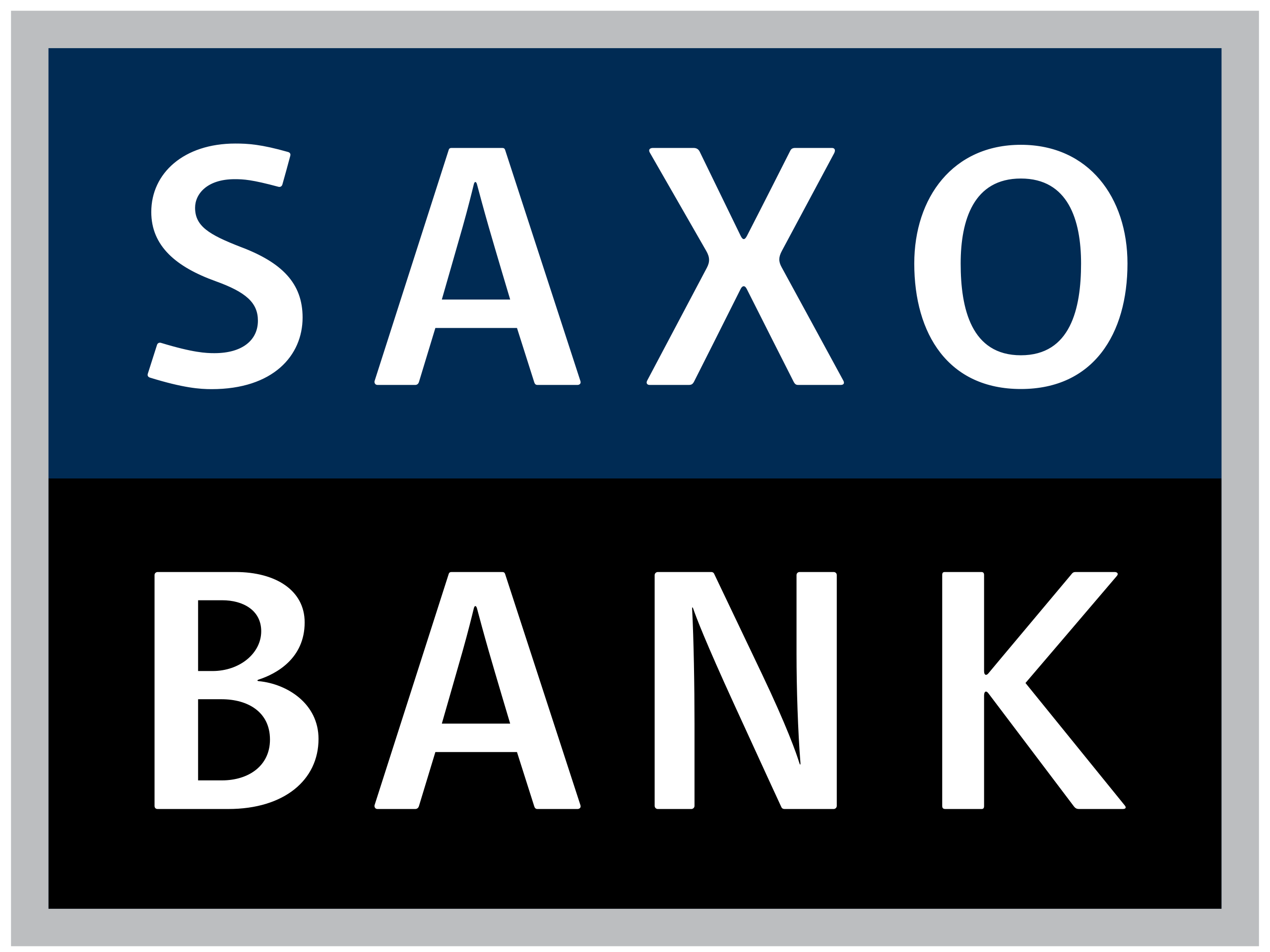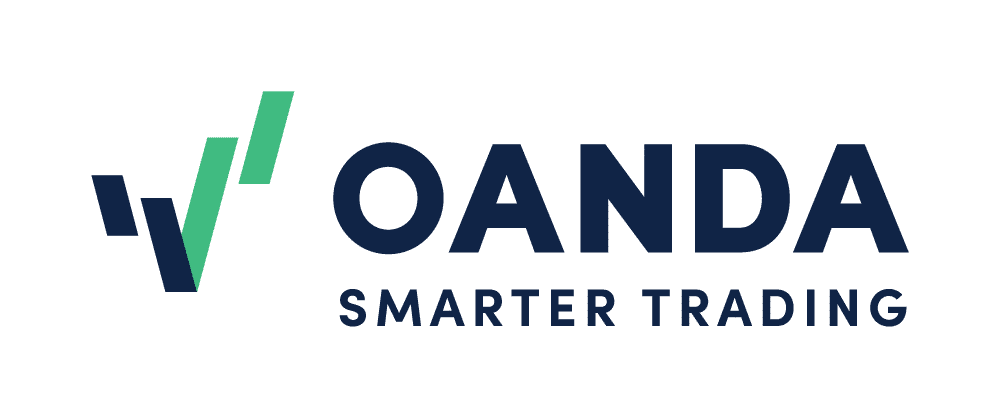Best Options Trading Brokers for Australia In 2023
Options Trading Brokers are platforms that facilitate trading of financial derivatives known as options. These contracts grant the holder the right, but not the obligation, to buy or sell an underlying asset at a predetermined price before a specified expiration date. Options trading brokers provide tools for executing, managing, and analyzing option trades.

Why is Interactive Brokers our favorite choice? Interactive Brokers excels as the best options trading broker due to its comprehensive options trading tools, advanced platforms, global market access, and competitive pricing, empowering diverse trading strategies.
Running Low on Time? Here the best Options Trading Brokers in 2023
- Interactive Brokers: Unveil groundbreaking opportunities with Interactive Brokers’s extensive forex pairs. Enjoy competitive spreads, ample leverage choices, and rapid order execution on a feature-rich platform;
- IG: As an industry powerhouse, IG boasts diverse forex markets with competitive spreads, ensuring efficient trading for time-sensitive situations;
- Forex.com: Tailored for all skill levels, Forex.com enriches its forex offerings with abundant educational resources, guaranteeing efficient and informed trading.
- FXCM: Delve into the forex world with FXCM’s reliable platform, benefiting from its educational resources and comprehensive trading options;
- Saxo Bank: Access forex markets confidently through Saxo Bank, known for its robust platform and diverse trading opportunities;
- TD Ameritrade: Leverage TD Ameritrade’s platform for a wide range of forex experiences, catering to both beginners and seasoned traders;
- OANDA: Uncover the forex landscape with OANDA’s platform, offering a wealth of trading options and educational resources for traders of all levels.
If you would like to learn how we rank Brokers, Click Here
Best Options Trading Brokers — Full Analysis (Updated in 2023)
Interactive Brokers
Minimum Deposit: $100
Our Score: 9.6/10
Tradable Symbols: 17000
Maximum Leverage: 50:1
Discover the capabilities of InteractiveBrokers, presenting a $100 minimum deposit. With a remarkable rating of 9.6/10, it solidifies its position as a premier selection. Embrace access to an impressive 17,000+ tradable symbols and leverage up to 1:50, as InteractiveBrokers unveils a spectrum of trading possibilities. Immerse yourself in our in-depth analysis to unveil the robust features, advanced tools, and exceptional service that distinguishes InteractiveBrokers.
Pros:
- Wide Array of Assets: Tap into over 17,000 tradable symbols, offering diversified options.
- Modest Deposit Requirement: An affordable entry point caters to various trader types.
- Comprehensive Tools: From novices to experts, find comprehensive trading tools.
Cons:
- Learning Curve: The comprehensive features might pose challenges for beginners.
- Inactivity Fees: Frequent traders might gain more benefit due to potential inactivity fees.
IG
Minimum Deposit: $50
Our Score: 9.5/10
Tradable Symbols: 19537
Maximum Leverage: 50:1
For traders seeking a versatile forex trading platform, IG emerges as a standout choice. With a modest $50 minimum deposit, IG provides access to an extensive array of tradable symbols. Supported by competitive spreads and a user-friendly interface, it ensures a seamless and efficient trading experience. IG’s commitment to excellence solidifies its reputation as a preferred option among forex enthusiasts. Dive into our comprehensive IG review to uncover its unique features and the multitude of trading advantages it presents.
Pros:
- Diverse Forex Markets: IG offers a wide range of forex markets, providing diverse trading opportunities.
- Competitive Spreads: Enhanced trading efficiency with competitive spreads.
- User-Friendly Platform: Suitable for traders of all skill levels, IG’s platform is easy to navigate.
Cons:
- Limited Educational Resources: Educational resources may be more limited compared to some competitors.
- Inactivity Fees: There might be inactivity fees if the account remains inactive for a specific period.
Forex.com
Minimum Deposit: $100
Our Score: 9.4/10
Tradable Symbols: 500+
Maximum Leverage: 1:500
Forex.com, renowned as a CFD Broker, shines as a bastion of educational enlightenment. The intricate world of trading becomes navigable through their user-friendly platform and unwavering dedication to innovation. Forex.com welcomes traders of all levels, ensuring empowerment in trading endeavors. Whether you’re a novice embarking on your first trade or a seasoned trader refining your strategy, Forex.com’s comprehensive offerings amplify your potential. Immerse yourself in the possibilities that Forex.com offers by exploring its facets through our detailed review.
Pros:
- Rich Educational Resources: Catering to traders of all skill levels.
- Diverse Tradable Assets: Over 500 symbols for various trading strategies.
- Strong Reputation in the industry.
Cons:
- Higher Leverage Risk: A maximum leverage of 1:500 requires careful risk management.
- Possible Inactivity Fees
FXCM
Minimum Deposit: $50
Our Score: 9.3/10
Tradable Symbols: 20 at one time
Maximum Leverage: 1:1000
FXCM presents a competitive $50 minimum deposit, catering to a wide range of traders. Our 9.3/10 rating underscores its industry reliability. With a maximum leverage of up to 1:1000, FXCM offers diverse trading opportunities. For a comprehensive overview of FXCM’s features, tools, and trading conditions, delve into our detailed review.
Pros:
- Low Minimum Deposit: Starting at $50, suitable for various budgets.
- Multiple Trading Platforms: Variety of platforms catering to different trading preferences.
- Educational Resources: Provides educational content for skill enhancement.
Cons:
- Limited Cryptocurrency Selection: The range of tradeable cryptocurrencies might be restricted.
- Variable Spreads: Spreads can vary based on market conditions.
Minimum Deposit: $2000
Our Score: 9.3/10
Tradable Symbols: 1000
Maximum Leverage: 1:100
Saxo Bank, a notable broker, beckons with a minimum deposit of $100. Its attractive 1:100 maximum leverage and array of 1000 tradable symbols set the stage for a dynamic trading experience. Our comprehensive review dives deep into Saxo Bank’s offerings, encompassing advanced tools and global accessibility.
Pros:
- Advanced Platform: Saxo Bank’s platform boasts advanced features for a seamless trading journey.
- Diverse Tradable Assets: Access a broad selection of 1000 tradable symbols across various markets.
- Educational Resources: Benefit from valuable resources tailored for traders of all levels.
Cons:
- Higher Minimum Deposit: A minimum deposit of $100 might not be suitable for all traders.
- Complex Interface: Novice traders may initially find the platform’s depth overwhelming.
TD Ameritrade
Minimum Deposit: $50
Our Score: 9.1/10
Tradable Symbols: 10000
Maximum Leverage: 1:4
TD Ameritrade stands out with an affordable $50 minimum deposit, unlocking a vast selection of over 10,000 tradable stocks. Our comprehensive review delves into its functionalities, user-friendliness, and trading capabilities. Want a deeper understanding? Immerse yourself in our thorough evaluation.
Pros:
- Accessible Entry: Begin trading with just $50, making it budget-friendly.
- Extensive Stock Choices: Choose from over 10,000 tradable stocks, catering to various preferences.
- Versatile Tools: Explore diverse trading tools and enriching educational resources.
Cons:
- Forex Limitations: Limited options for forex trading may disappoint some traders.
- Inactivity Fees: Smaller accounts may incur higher inactivity fees over time.
Oanda
Minimum Deposit: $0
Our Score: 9.0/10
Tradable Symbols: 1000+
Maximum Leverage: 1:50
Embark on a trading journey with OANDA, featuring a $0 minimum deposit and a 1:50 maximum leverage. Engage with 1000+ tradable symbols on their platform. Our comprehensive review scrutinizes OANDA’s functionalities, user-friendliness, and trading prowess. For a thorough understanding, delve into our extensive review.
Pros:
- Zero Initial Investment: Begin trading without a minimum deposit requirement.
- Abundant Tradable Symbols: Access a wide range of over 1000 tradable symbols.
- Intuitive Platform: Navigate a user-friendly interface seamlessly.
Cons:
- Moderate Leverage: Some traders might desire a higher maximum leverage.
- Inactivity Fees: Certain situations may incur inactivity fees.
Why use an Options Trading Broker?
Using an Options Trading Broker offers numerous advantages that empower traders in the complex world of options trading. These brokers specialize in facilitating options trading, providing a range of benefits that enhance the trading experience.
Firstly, options trading can be intricate and challenging, requiring in-depth knowledge and expertise. An Options Trading Broker offers educational resources, tutorials, and expert guidance to assist both novice and experienced traders in understanding the intricacies of options contracts, strategies, and market dynamics.
Secondly, these brokers provide access to advanced trading platforms specifically designed for options trading. These platforms offer tools for analyzing options chains, assessing implied volatility, and executing complex options strategies with ease. This enhances efficiency and accuracy in trading decisions.
Additionally, Options Trading Brokers offer a wide variety of options contracts, allowing traders to choose from various strike prices, expiration dates, and underlying assets. This flexibility enables traders to tailor their strategies according to their risk tolerance and market outlook.
Furthermore, options trading involves managing risk effectively. Options Trading Brokers provide risk management tools like stop-loss orders and options strategies that can help mitigate potential losses.
Lastly, these brokers often offer competitive pricing and reduced commissions for options trading, ensuring that traders can execute their strategies without incurring high costs.
In conclusion, utilizing an Options Trading Broker is a prudent choice for those interested in navigating the complexities of options trading. From educational resources to advanced platforms, options variety to risk management tools, these brokers offer the comprehensive support necessary for successful options trading endeavors.
Pros & Cons of using an Options Trading broker
Pros:
- Expertise and Education: Options Trading Brokers provide specialized expertise and educational resources that help traders navigate the complexities of options trading. From beginner-friendly tutorials to advanced strategies, traders can enhance their knowledge and skills.
- Advanced Trading Platforms: These brokers offer dedicated platforms with advanced tools specifically designed for options trading. These platforms enable traders to analyze options chains, assess risk-reward profiles, and execute complex strategies efficiently.
- Access to Diverse Options Contracts: Options Trading Brokers provide access to a wide range of options contracts, allowing traders to choose from various strike prices, expiration dates, and underlying assets. This diversity enhances flexibility in crafting trading strategies.
Cons:
- Fees and Commissions: Options trading involves costs such as commissions and fees, which can impact profitability. Traders need to carefully consider these costs when executing multiple trades or complex strategies.
- Learning Curve: Options trading is intricate and requires a solid understanding of the market, strategies, and risk management. Novice traders may face a steep learning curve, which can result in potential losses if not approached with caution.
- Risk of Losses: While options trading offers profit potential, it also comes with a significant risk of losses. Without proper risk management and a clear understanding of options strategies, traders can incur substantial losses.
How to choose the best Options Trading broker
Choosing the best Options Trading broker is a crucial step for successful options trading. Here are key factors to consider when making your decision:
- Regulation and Security: Ensure the broker is regulated by a reputable financial authority. Regulation ensures adherence to industry standards, protecting your funds and ensuring fair trading practices
- Options Offerings: Look for a broker that offers a wide range of options contracts, including equity options, index options, and more. Having access to various underlying assets and expiration dates enhances your trading opportunities
- Trading Platform: Opt for a broker with a user-friendly and feature-rich trading platform specifically designed for options trading. The platform should offer real-time data, advanced charting, options chains, and risk management tools;
- Educational Resources: A good broker should provide educational materials tailored to different levels of expertise. These resources can include tutorials, webinars, articles, and videos to help you understand options trading concepts and strategies;
- Commissions and Fees: Compare the commission structure and fees for options trading. Consider both per-contract fees and flat fees, and assess how these costs can impact your overall trading profitability;
- Research Tools: Comprehensive research tools are essential for options traders. Look for brokers that provide in-depth market analysis, volatility metrics, probability calculators, and options strategy screeners;
- Customer Support: A responsive customer support team is crucial for addressing any issues or questions you may have while trading. Test their support channels to ensure prompt and helpful assistance.
- Demo Account: Some brokers offer demo accounts that allow you to practice options trading without risking real money. This can be valuable for learning the platform and testing strategies
- Mobile Trading: Consider brokers with mobile trading apps, as options markets can be fast-paced. A mobile app allows you to monitor your trades and execute orders on the go
- Liquidity and Execution Speed: Choose a broker with strong market liquidity and fast execution speeds. This ensures that your orders can be executed without significant slippage, especially for time-sensitive options trades;
- Account Types: Evaluate the types of accounts offered by the broker, including individual, joint, retirement, and margin accounts. Choose one that aligns with your trading goals and needs;
- Risk Management Tools: Ensure the broker provides risk management tools like stop-loss orders, trailing stops, and options strategies that help mitigate potential losses.
By carefully considering these factors and conducting thorough research, you can select the best Options Trading broker that meets your trading preferences and goals. Remember that the right broker should offer a balance between comprehensive features, educational resources, and competitive pricing.

Alternatives to Options Trading Broker
If you’re exploring alternatives to traditional Options Trading brokers, consider these options:
Robo-Advisors
Robo-advisors automate the investment process based on your risk tolerance and financial goals. While not the same as active options trading, some robo-advisors offer automated options strategies as part of their services.
Full-Service Brokerage
If you prefer personalized guidance and investment advice, full-service brokerages offer professional financial advisors who can help you with options trading strategies and portfolio management.
Options Trading Platforms
Specialized options trading platforms, such as Thinkorswim by TD Ameritrade or Tastyworks, provide advanced options trading tools, research, and education. These platforms are designed specifically for options traders.
Online Trading Platforms
Some online trading platforms offer options trading alongside other assets like stocks, forex, and cryptocurrencies. These platforms cater to traders looking for a diverse range of trading opportunities
Social Trading Platforms
Social trading platforms allow you to follow and copy the trades of experienced traders. While this may not involve direct options trading, it offers an opportunity to learn from others and potentially benefit from their strategies.
Options Trading Broker Fees
Options trading broker fees can vary widely depending on the platform and services offered. Common fees include options contract fees, which are charges for each contract traded. Commissions may also apply per trade or per contract. Some brokers offer commission-free options trading, while others have a fee structure based on the number of contracts or trade size. Additionally, there might be exercise and assignment fees for specific options positions. It’s essential to understand the fee structure of your chosen broker to accurately assess the cost of options trading. Consider factors like contract fees, commissions, and any potential hidden fees when comparing options trading brokers.
FAQs
1. What is an options trading broker?
An options trading broker is a financial intermediary that facilitates the buying and selling of options contracts on various underlying assets, such as stocks, ETFs, indices, and commodities. These brokers provide a platform for traders to execute options strategies and manage their options positions.
2. How do I choose the best options trading broker?
When selecting an options trading broker, consider factors such as commission fees, available trading tools, research resources, user interface, customer support, and the variety of options contracts offered. It’s essential to choose a broker that aligns with your trading goals and preferences.
3. Are there commission-free options trading brokers?
Yes, many brokers offer commission-free options trading, which means you won’t be charged a fee per trade or per contract. However, be cautious and review the broker’s fee structure, as there might be other fees, such as contract fees or exercise and assignment fees.
4. What types of options contracts can I trade?
Most options trading brokers offer a range of options contracts, including call options, put options, covered calls, and spreads. Some brokers also provide access to more complex options strategies, such as straddles, strangles, and iron condors.
5. How much capital do I need to start options trading?
The capital requirement varies among brokers. Some platforms have a low minimum deposit, while others may require a more substantial initial investment. It’s recommended to choose a broker that aligns with your budget and risk tolerance.








No Comments found